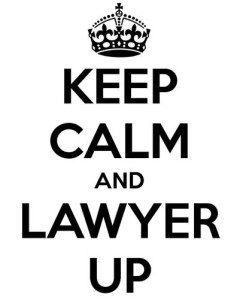Usually we post about the fun and exciting things about the miles and points world. First class flights and overwater bungalows and the such.
But today’s post is a cautionary tale. In the miles and points world, we often do things that, while not (usually) illegal, banks and other credit card companies don’t like. I’m talking about things like signing up for multiple credit card bonuses and then canceling your card / accounts, or some types of manufactured spending, or other like behavior.
Depending on what you do (and at what volume), you’re always at risk of things like an Amex “Financial Review” or similar actions from other banks (Chase, Citi, etc.)
What’s the worst that can happen
So what’s the worst that can happen? Well, it depends on what you’ve done! Generally if you haven’t done anything illegal you have nothing to worry about, right? right?
I got an interesting comment a few months ago when I talked about a promotion for $5 off your shopping order buying gift cards at Kroger. I had talked about buying large quantities of these with my new American Express EveryDay card, and one of the commenters mentioned:
Seeing the words “financial review” gave me hives. Been there, done that. I’d rather have a body cavity search than do that again!
Well, mine got pretty intense and I am no longer an Amex customer. But mine was not related to manufactured spend, just a pattern they decided they didn’t like anymore (coincided with me selling/buying a house).
And I “lawyered up” if that answers your question.
So… that sounds intense 🙂
But if we set aside any actual legal trouble that you might get in, the bank is totally within its rights to drop you as a customer and potentially forfeit any miles or points that you’ve earned.
Is that a problem?
Well, it COULD be a problem if you have a ton of points in a program. That can be mitigated some by not keeping large balances (remember: Earn ’em and burn ’em!). Let’s say you got “in trouble” with Chase for something. Potentially losing all of your Chase Ultimate Rewards, for example, would be annoying. And it would be doubly annoying if one were banned from getting any new Chase credit cards.
But, it wouldn’t be CATASTROPHIC, right? Life would go on, and your day-to-day life would probably be mostly unaffected.
So, don’t poop where you eat
![]() But… what if you also did most of your day-to-day banking with Chase (you know, like, in your REAL life!) Your salary is direct-deposited into a Chase account, and you use that Chase bank account to pay off all your OTHER credit cards, not to mention your (Chase) mortgage.
But… what if you also did most of your day-to-day banking with Chase (you know, like, in your REAL life!) Your salary is direct-deposited into a Chase account, and you use that Chase bank account to pay off all your OTHER credit cards, not to mention your (Chase) mortgage.
Then all of a sudden if Chase decides to play nasty and/or freeze all your accounts, that suddenly turns into a big deal, right?
I love Milenomics’ post about setting up “Financial Firewalls” between your travel hacking accounts, and your “real” accounts. When Phil from MilesAbound was talking about Manufactured Spending at the Family Travel for Real Life conference, I asked a question regarding whether he had any bad experiences with his bank from depositing a lot of money orders.
His response led to the title of this post, though I’m quite sure he put it more colorfully 🙂
What he suggested (and Milenomics and I both agree) is the need for separation. His specific recommendation in that case was to set up a separate bank account and use that separate account for any manufactured spending activity.
So what do you think? Have you set up your financial “firewall” to protect yourself?
This site is part of an affiliate sales network and receives compensation for sending traffic to partner sites, such as thepointsguy.com. This may impact how and where links appear on this site. Responses are not provided or commissioned by the bank advertiser. Some or all of the card offers that appear on the website are from advertisers and that compensation may impact on how and where card products appear on the site. Any opinions expressed in this post are my own, and have not been reviewed, approved, or endorsed by my advertising partners and I do not include all card companies, or all available card offers. Terms apply to American Express benefits and offers and other offers and benefits listed on this page. Enrollment may be required for select American Express benefits and offers. Visit americanexpress.com to learn more. Other links on this page may also pay me a commission - as always, thanks for your support if you use them
User Generated Content Disclosure: Points With a Crew encourages constructive discussions, comments, and questions. Responses are not provided by or commissioned by any bank advertisers. These responses have not been reviewed, approved, or endorsed by the bank advertiser. It is not the responsibility of the bank advertiser to respond to comments.





 Dan Miller travels with his wife and 6 (SIX!) children. He loves to help families travel for free / cheap, especially larger families. If you are looking for help, drop him an email at
Dan Miller travels with his wife and 6 (SIX!) children. He loves to help families travel for free / cheap, especially larger families. If you are looking for help, drop him an email at 
Great points. It’s one of the reasons why I wouldn’t buy a CD from my credit card issuer.